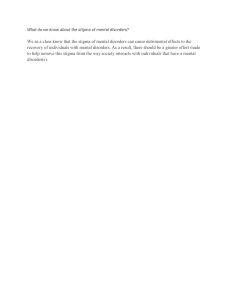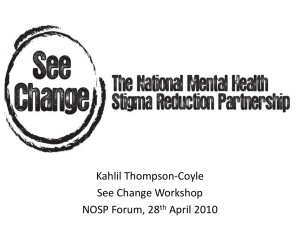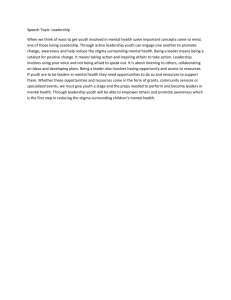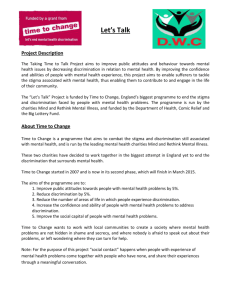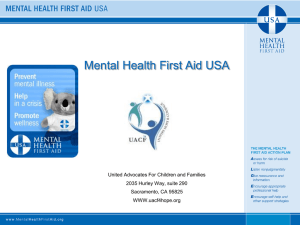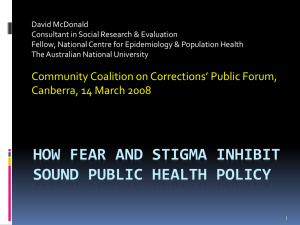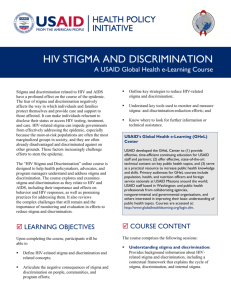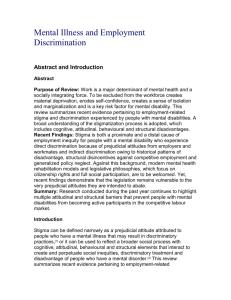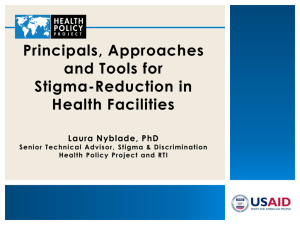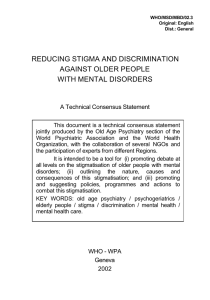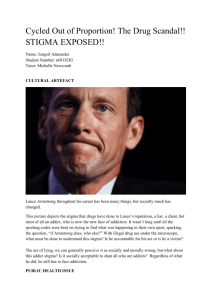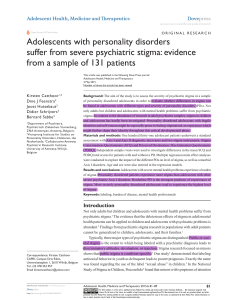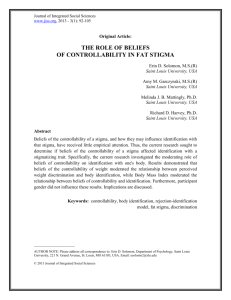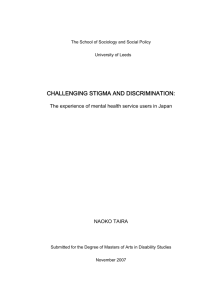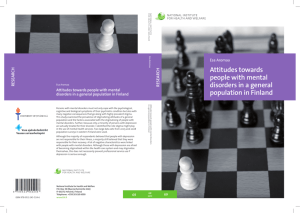When Does Psychiatric Stigma Hurt Most?
advertisement
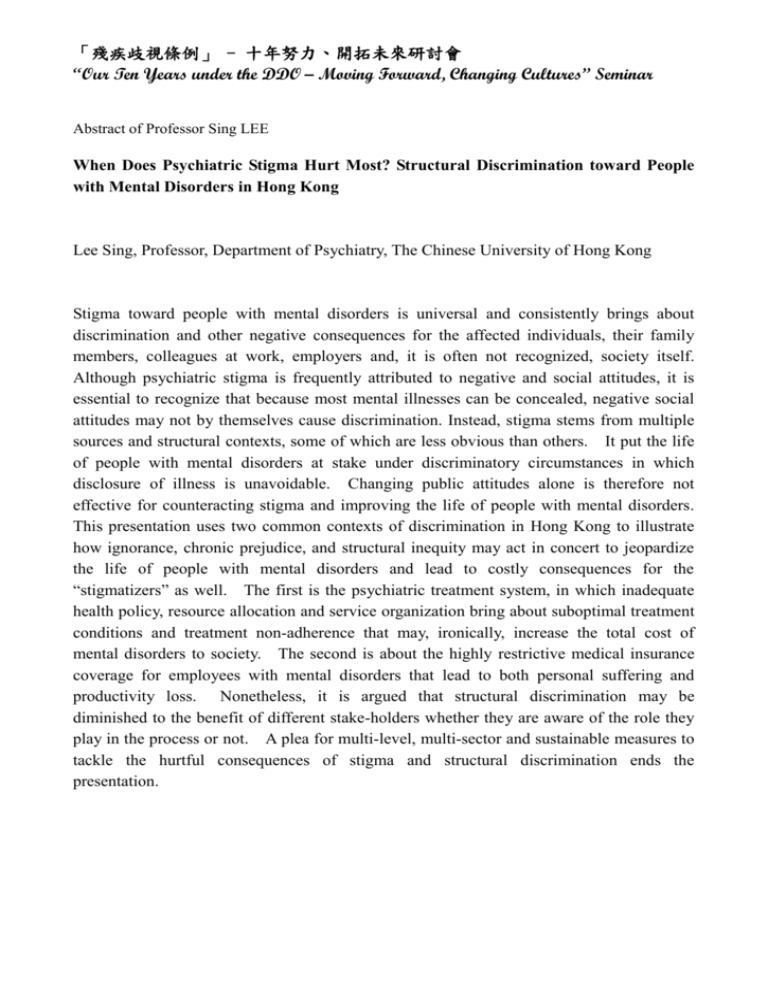
「殘疾歧視條例」 - 十年努力、開拓未來研討會 “Our Ten Years under the DDO – Moving Forward, Changing Cultures” Seminar Abstract of Professor Sing LEE When Does Psychiatric Stigma Hurt Most? Structural Discrimination toward People with Mental Disorders in Hong Kong Lee Sing, Professor, Department of Psychiatry, The Chinese University of Hong Kong Stigma toward people with mental disorders is universal and consistently brings about discrimination and other negative consequences for the affected individuals, their family members, colleagues at work, employers and, it is often not recognized, society itself. Although psychiatric stigma is frequently attributed to negative and social attitudes, it is essential to recognize that because most mental illnesses can be concealed, negative social attitudes may not by themselves cause discrimination. Instead, stigma stems from multiple sources and structural contexts, some of which are less obvious than others. It put the life of people with mental disorders at stake under discriminatory circumstances in which disclosure of illness is unavoidable. Changing public attitudes alone is therefore not effective for counteracting stigma and improving the life of people with mental disorders. This presentation uses two common contexts of discrimination in Hong Kong to illustrate how ignorance, chronic prejudice, and structural inequity may act in concert to jeopardize the life of people with mental disorders and lead to costly consequences for the “stigmatizers” as well. The first is the psychiatric treatment system, in which inadequate health policy, resource allocation and service organization bring about suboptimal treatment conditions and treatment non-adherence that may, ironically, increase the total cost of mental disorders to society. The second is about the highly restrictive medical insurance coverage for employees with mental disorders that lead to both personal suffering and productivity loss. Nonetheless, it is argued that structural discrimination may be diminished to the benefit of different stake-holders whether they are aware of the role they play in the process or not. A plea for multi-level, multi-sector and sustainable measures to tackle the hurtful consequences of stigma and structural discrimination ends the presentation.
